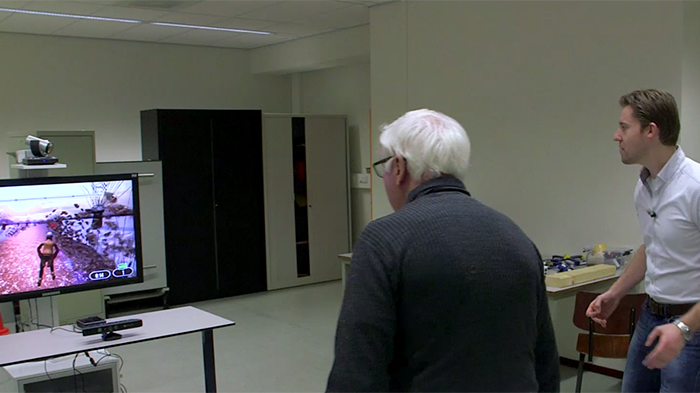Exergame for seniors trains balance
PhD student Mike van Diest (SPRINT/UMCG research centre/INCAS³) has developed a game to help seniors improve their balance at home. Improved balance can prevent falls. While playing the game, seniors make skating movements in front of their TV. A camera registers these movements and shows them in a virtual cross-country skating trip on the TV screen. The game trains both stamina and coordination.
After practising for half an hour three times a week over six weeks, the balance of some seniors had indeed improved. The seniors who participated were very enthusiastic. Some of them were so keen that they practised more than they were asked to. The game is now being further developed and may be brought to market.
- Contact: via the UMCG Press Office, tel. 050 361 2200
- Project leader: Dr Claudine Lamoth
- More information on the exergame project

University of Groningen videos
The weekly online video magazine Unifocus highlights topics related to the University of Groningen in the fields of research and society, student life, teaching, policy and internationalization.
You can find more videos in our video portal.
| Last modified: | 28 September 2021 11.36 a.m. |
More news
-
14 April 2025
12 Marie Sklodowska Curie Doctoral Networks for the University of Groningen
The University of Groningen has achieved very good results in the last round of Marie Sklodowska Curie Doctoral Networks.
-
05 March 2025
Women in Science
The UG celebrates International Women’s Day with a special photo series: Women in Science.
-
28 February 2025
Vici grants for two UG/UMCG scientists
The Dutch Research Council (NWO) has awarded Vici grants, worth up to €1.5 million each, to Merel Keijzer and Charalampos Tsoumpas This will enable the researchers to develop an innovative line of research and set up their own research group for...
